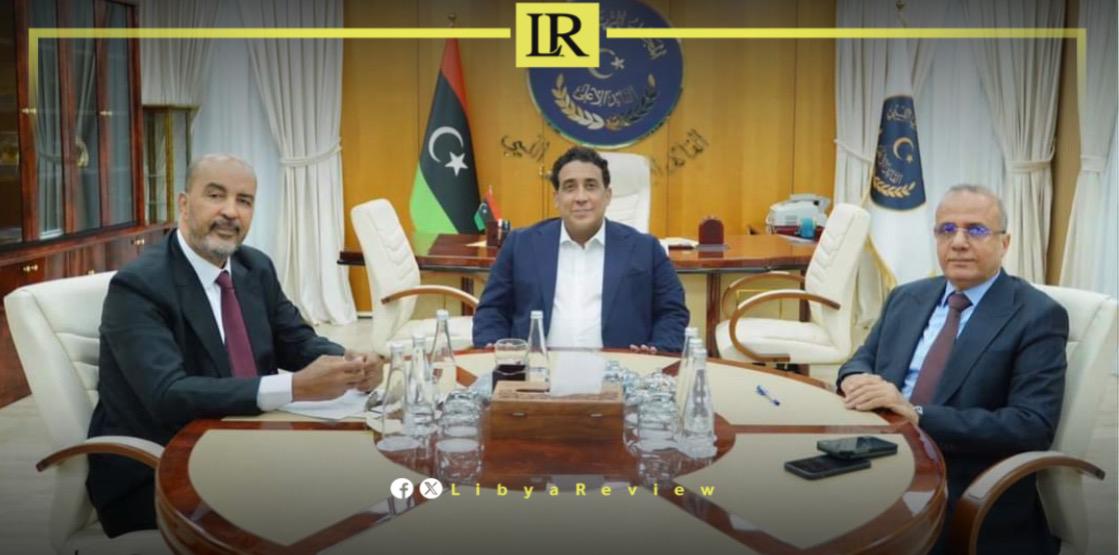On Sunday, the Libyan Presidential Council convened a consultative meeting to address the current political, economic, security, and military developments across Libya. However, the Council did not provide further details on the discussions.
The meeting was chaired by Mohamed Al Mnifi, the head of the Presidential Council, along with his deputies, Abdullah Al-Lafi and Mousa Al-Koni.
This meeting follows a significant meeting in March, where Al Mnifi, in his capacity as the supreme commander of the army, met with General Mohamed Al-Haddad, the Chief of General Staff, his deputy General Salah Al-Namroush, Commander of the Western Coastal Military Region, and Major General Abdulqader Mansour, the Military Governor of Tripoli. These discussions took place shortly after clashes between armed groups in the city of Zawiya.
Western Libya has been experiencing fluctuating levels of military tension and conflict between armed militias, resulting in casualties, injuries, and civilian distress. These ongoing clashes highlight the precarious security situation in Libya, a country that has been in turmoil since the 2011 uprising that ousted longtime ruler Muammar Gaddafi.
Libya has been grappling with instability and fragmentation since Gaddafi’s fall, with various factions vying for control. The country is divided between the internationally recognized Government of National Unity (GNU) based in Tripoli and the Libyan National Army (LNA) led by Khalifa Haftar in the east. This division has fueled continuous conflict, disrupting the peace process and hindering efforts to establish a unified government.
The Presidential Council, established under the Libyan Political Agreement signed in Skhirat, Morocco, in 2015, is tasked with leading the country through a transitional period towards national elections. Despite international support, the Council faces significant challenges, including militia violence, political fragmentation, and economic instability.
The recent meetings and ongoing consultations by the Presidential Council signify its efforts to manage these challenges. By focusing on comprehensive discussions that address political, economic, and security issues, the Council aims to pave the way for a more stable and peaceful Libya.
The international community remains deeply invested in Libya’s path to stability, providing support through various diplomatic and humanitarian efforts. The success of the Presidential Council’s initiatives is crucial for the country’s future, as it seeks to rebuild and restore peace in a nation that has endured over a decade of conflict.


